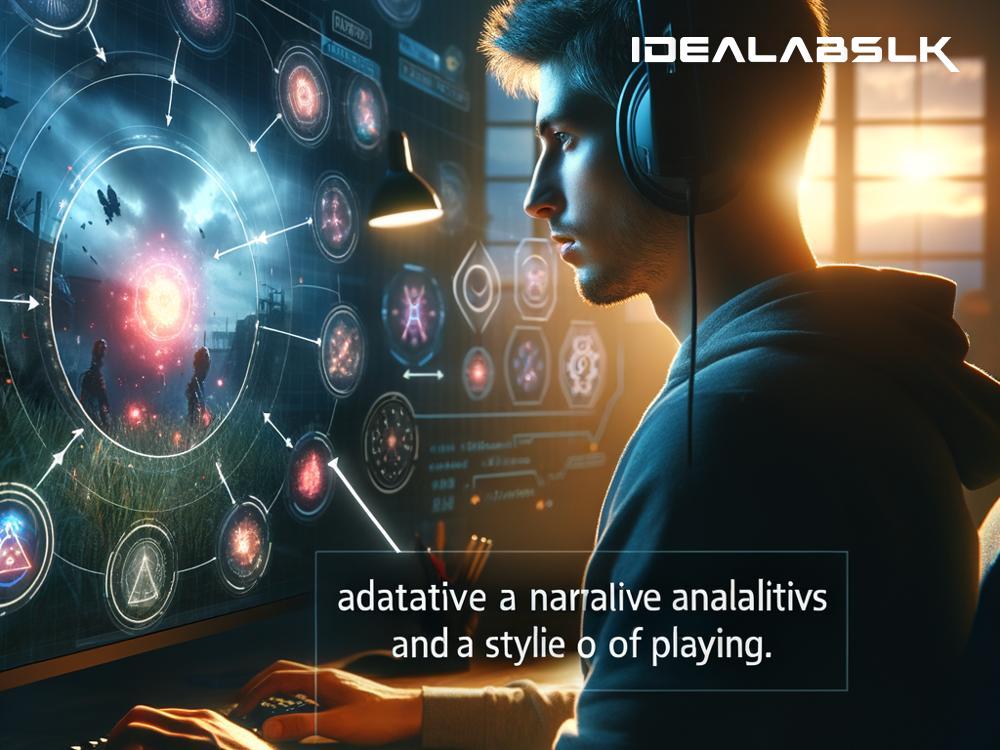AI-Powered Game Personalization: How Your Playstyle Will Affect Game Design in 2024
The gaming world is no stranger to innovation. Over the years, we've grown from pixelated screens and rudimentary graphics to immersive worlds that are almost indistinguishable from reality. Yet, it's not just the visuals that have undergone a transformation; the way games adapt to who is playing them is undergoing a massive shift too. As we look towards 2024, AI-powered game personalization is set to redefine our gaming experiences, tailoring them to our individual playstyles in ways we've never seen before.
What is AI-Powered Game Personalization?
Before diving into the future, let's unpack what we mean by "AI-powered game personalization." In simple terms, this involves using artificial intelligence (AI) to modify game experiences uniquely for each player. Unlike traditional games, which are static and remain the same regardless of who plays them, AI-powered games can learn from and adapt to the individual behind the controller.
Your Playstyle, The Blueprint
Everyone has their unique way of engaging with games. Some might prefer a stealth approach, taking their time to navigate challenges, while others might go in guns blazing, thriving on fast-paced action. In today's gaming landscape, games try to cater to a wide audience by incorporating various elements that appeal to different playstyles. However, this one-size-fits-all approach has its limitations.
Enter 2024, where AI in gaming takes personalization to another level. Imagine a game that notices you prefer stealth and begins to subtly adjust, offering you more tools and pathways to embrace that playstyle. Or, if you're someone who loves solving puzzles, the game could introduce more complex challenges, rewarding your patience and analytical skills. This isn't about making the game easier or harder but about making it feel like it was crafted just for you.
The Magic Behind The Scenes
How does this all work? It might sound like something straight out of a sci-fi novel, but the technology is more straightforward than you might think. AI systems can monitor your in-game actions — which paths you take, how you solve problems, which items you use the most, and so on. This data then informs how the game evolves, influencing everything from the storyline to available items, encounter rates with enemies, and even dialogues with non-playable characters (NPCs).
The Benefits of a Tailored Gaming Experience
This level of personalization has far-reaching implications for player engagement and satisfaction. Games that adapt to your personal preferences and playstyle can offer a more enjoyable and fulfilling experience. Instead of feeling stuck or bored because a game doesn't mesh with how you like to play, AI personalization ensures the game evolves in a direction that keeps you engaged. It's like having a game designed just for you, changing and growing as your preferences do.
Moreover, this approach can breathe new life into games, giving them a level of replayability previously unattainable. With AI-driven changes, playing through a game again can offer a completely different experience, influenced by the different choices or playstyles you adopt in subsequent playthroughs.
Challenges and Considerations
While the prospect of AI-powered game personalization is exciting, it's not without its challenges. Privacy concerns are at the forefront, with developers needing to navigate the collection and handling of player data carefully. Furthermore, ensuring that AI personalization is inclusive and considers the vast diversity of players and playstyles is crucial. Balancing the AI to be responsive but not overly invasive or predictive will be a tightrope walk for developers.
Looking Ahead
As we approach 2024, the promise of AI-powered game personalization is on the horizon, hinting at a future where games are not just about escaping reality but about deepening our connection to our virtual experiences. This technology has the potential to revolutionize not just how we play games but how games are designed, shifting the focus from pleasing a broad audience to catering to the individual player.
AI-powered game personalization represents a bold step forward in making games more immersive, engaging, and personal than ever before. As we wait to see how this technology unfolds, one thing is clear: the way we play and interact with games is about to change in a very personal way.

